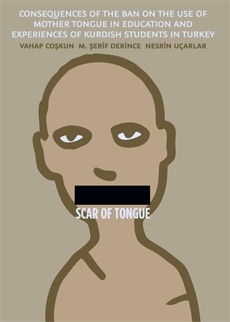Scar of tongue: Consequences of the ban on the use of mother tongue
in education and experiences of Kurdish students in Turkey
Vahap Coșkun,
M. Șerif Derince,
Nesrin Uçarlar
Disa
Beginning in the 1960s, when the political, cultural and economic demands of various social groups began to be more strongly reflected in the public sphere, the totalitarian policies of nation-states began to falter. In particular, authoritarian practices aimed at creating a common national identity and a single national language began to meet with significant objections. Groups that had been at odds with the prevailing majority on ethnic, linguistic and religious grounds and that had up to that time been kept at a distance from the administrative centre began to demand the preservation and protection of their identities and cultures.
These demands were also reflected in Turkey. The concept of ... | 